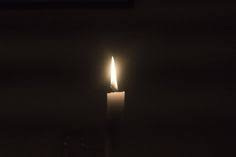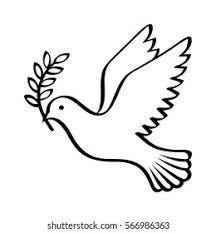Passover is a week-long observation for Jewish people. It remembers the night that the Angel of Death knows which houses to visit, and which houses to spare, during the last plague of Egypt. This was a cull of the first-born. Finally, Pharaoh relents, and Moses leads the Jews out into the desert and towards the Promised Land.
All over the world, the Jewish people, of whatever nationality, will be celebrating Passover. I was married to a Jew for some years - her mother was a New Yorker, and my wife Susie lived in New York city as a young woman. When we got together, I had to build her a huge kitchen out in the country, and while our marriage didn’t survive, the kitchen is great. Thanks Susie! (We are friends).
I came to understand and respect so much about the Jewish traditions. I am interested in religion - how could I not be- I was brought up by evangelists. I loved the question at the Seder meal, asked by the youngest child: ‘Why is this night different from all other nights?
The valuable psychological benefit of repeated ritual, passed down generations, is to lift up significant time out of ordinary linear time. To shut down the machine-like demands of the clock, and to remember, without hurry, and in the company of others, that not everything we do, not everything we are, can be measured on the surface. Much as Facebook Marketplace and Trump Tariffs would like to devalue everything about us to nothing more than the transactional, well, humans value other kinds of exchange.
Inter-generational memory is exchange. Sharing food is exchange. Being together is exchange. A faith that binds us is exchange. Values that make a community - that’s exchange. The best of humans is not for gain and not for sale.
For many centuries, the Jews were a people without a homeland. Wherever they were, and often reviled by others, they came together to hold onto an identity not woven into a flag. That has changed. Like many, and many of my friends are Jews, I am horrified by Netanyahu’s determination to wipe out the people of Gaza. No-one can condone what Hamas did. There are no excuses. But when will people of faith, any faith, and this applies equally to Christians, Muslims, and Jews, stop believing that their sky-god demands perpetual slaughter before there can be peace on earth?
All religions call themselves religions of love. Love is not violence.
I prefer the separation of Church and State. Not because people of faith should stay out of politics, but because once politicians start claiming scripture is on their side - and that’s why they are doing whatever it is they are doing - all rational and progressive institutions (the law, universities, independent public bodies) are eroded. America recognised the importance of the separation of church and state in the Constitution. Freedom of worship was what drove the Founding Fathers to leave England in the first place. Freedom of worship allows plurality of thought and expression. Free speech is not a free pass to say anything, however stupid and hateful. Free speech is there to allow people to disagree - whether on matters of worship or a way of life. Free speech is respect and debate. Not insults and lies.
Apart from Vatican City, which is a fascinating and bonkers little personal kingdom with its own postage stamps and the Pope, world theocracies are all Muslim. Iran, Afghanistan, Saudi Arabia, are three of them. Afghanistan is the most extreme. As a woman I would rather be dead than live there. Theocracies allow no freedom. Only what clerics say is the will of Allah. It is possible that Putin will turn Russia into a Christian theocracy. Russia under Communism was a secular theocracy - by which I mean no sky-god but all the terrible rules and ridiculous justifications and failures of feeling that we have come to expect from hardline religious politics. When Putin invaded Ukraine, the Russian Orthodox Church supported the destruction and continues to do so. Why? Putin is how the ROC stays relevant. Power pollutes religion.
And that’s the problem. Religion at its best confronts our basic instincts of tribalism. All religions advocate hospitality to the stranger. Religion asks that we show forgiveness and compassion to others. To be generous with money. Not to steal. Not to murder. To put aside a day a week where we don’t get involved in our worldly concerns, but reflect on our inner values, wonder where we might have gone wrong, be glad over what we got right, ask advice from those we trust.
Religion at its worst, oppresses, sows hatred, divides us, justifies violence as a means to an end, cares only for the outward show. Works hard to control women. Tries to limit education. Refuses responsibility for its crimes. Aligns itself with tyranny.
Yet… for any of us interested in the spiritual life, by which I mean a life that accepts a dimension to our human existence that isn’t only the material world, and the outward show, religious teaching is valuable. There is wisdom and beauty. Questioning. It feels right to me to hold onto what’s good in religious teaching, and not let what’s good be ruined by those who use their religion to justify their own behaviour. The morality police. The misogynists. Bullies. War-mongers. Those who can’t own their pathological need for control.
Today is Palm Sunday. The day that Christians remember Jesus entering Jerusalem. How did he enter? Not as a warrior on a war horse. A man riding a donkey. What that picture shows us is the rare combination of authority and humility - not a combination we see in our leaders, religious or political. Jesus is welcomed by the crowds. Why? He fed them, sat with them, listened to them, included women, taught them, forgave them. Stood up to oppressors without violence. No rallies, no motorcades, no uniforms, no show of strength. This was far from the Roman reality, the cult of war and power, and it was far from what orthodox Judaism wanted to see. This man could not be a Messiah. He wouldn’t fight. What was he? A homeless man with no money.
We are a long way from the message of that Jesus.
I am in Paris. By Notre-Dame. There have been services there all day, and processions of candles and palm leaves. I understand the show and the ritual. It’s solidarity. Kinship. People need community. Many queue to see the spectacle. Yet, when the spectacle is done, we are left with our own thoughts and our own response. For me, it’s simple.
Are we on the side of power or are we are on the side of love?
So many decisions, big and small, are decided in our lives by that choice. Do we bully or do we listen? Do we dismiss or do we make time to hear? To we hit back or do we step back? Do we take for ourselves or do we give to others? Do we notice when we have the power to act, and make sure we do so, to make things better, not worse? Do we use our authority with kindness, empowering others to find their confidence and skill? Are we restrained when we could easily score a point or do damage? Do we sneer at people? Do we make people feel small? Afraid? Can others come to us? Are we a friend? Is is all me and mine or is it also for you and yours?
Religion often fails us. Too much power. Too little love. We need not fail ourselves or others. Love it is, then.




Yes. I also spent years as a fundamentalist christian. The restrictions don't keep you safe. They inhibit your ability for creative relations with all other, including yourself. They immobilize our creativity for problem solving, by taking away our agency and giving it to an institution. Then it is at risk of atrophy, and is easily co-opted by other bullys. We become followers. Never the leader in our own consciousness.
"Love it is, then." Thank you for this, Jeannette Winterson.